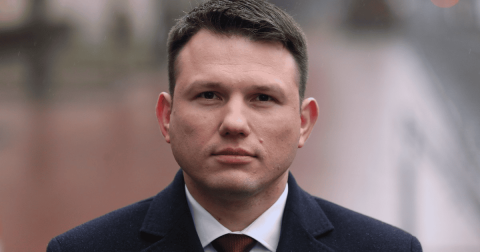Crypto-Friendly Poland with Strategic Bitcoin Reserve if Elected: Slawomir Mentzen
Sławomir Mentzen, a candidate in Poland’s 2025 presidential race, has unveiled ambitious plans to position Poland as a global cryptocurrency hub. Mentzen has pledged to create a Strategic Bitcoin Reserve and implement policies that foster a crypto-friendly environment, including low taxes and regulatory support. This bold initiative, inspired by a proposal from a leading crypto advocacy group, could transform Poland’s financial landscape. However, critics question the feasibility and practical implementation of such policies. If successful, Mentzen’s vision could attract significant investment and innovation, but it also raises concerns about risks and regulatory challenges.
Commitment to a Crypto-Friendly Poland
Transforming Poland into a Cryptocurrency Paradise Sławomir Mentzen has publicly declared his intention to establish Poland as a “cryptocurrency paradise” if he wins the presidency in 2025. In a statement on X (formerly Twitter), he emphasized the need for low taxes, business-friendly regulations, and collaboration with banks to cultivate a robust crypto ecosystem. This approach aims to make Poland a competitive destination for blockchain innovation and investment.
Collaboration with Industry Leaders
Mentzen’s announcement follows a proposal by Lech Wilczynski, CEO of crypto exchange Swap.ly, who advocated for a Strategic Bitcoin Reserve. Drawing on policy frameworks developed by the Satoshi Action Fund, Wilczynski suggested prioritizing this initiative over passing piecemeal crypto legislation. Mentzen affirmed his willingness to pursue the plan, signaling openness to industry collaboration.
Strategic Bitcoin Reserve: A Game-Changing Proposal
Blueprint for Financial Innovation Wilczynski’s concept for a Strategic Bitcoin Reserve positions Poland as a forward-thinking financial innovator. Inspired by policies from global crypto advocacy groups, this initiative aims to enhance Poland’s financial resilience and leverage the potential of decentralized assets. The draft bill is reportedly ready for implementation, setting the stage for swift action if Mentzen takes office.
Potential Benefits and Challenges
A Strategic Bitcoin Reserve could safeguard Poland against currency volatility, strengthen its fiscal stability, and boost its appeal to crypto investors. However, implementing such a reserve requires navigating complex legal, economic, and political hurdles, including integrating it into Poland’s broader financial strategy.
Economic and Political Implications
Poland as a European Crypto Hub If successful, Mentzen’s policies could position Poland as a leading cryptocurrency hub in Europe, rivaling established markets like Switzerland and Estonia. Reduced regulatory hurdles and tax incentives could attract blockchain companies and encourage innovation, creating jobs and driving economic growth.
Public and Regulatory Scrutiny
While Mentzen’s vision appeals to libertarian and right-wing voters, critics question its feasibility. Establishing a Strategic Bitcoin Reserve requires significant political will and robust infrastructure. Moreover, such bold moves could face opposition from traditional financial institutions and policymakers wary of crypto’s volatility and regulatory complexities.
The Road Ahead
Election Outcome as a Decisive Factor The realization of Mentzen’s crypto-friendly vision hinges on the outcome of the May 2025 elections. A victory would mark the beginning of an ambitious effort to transform Poland’s financial landscape. However, the execution of these policies will likely be scrutinized for their practicality and long-term impact.
Balancing Innovation with Responsibility
As Poland contemplates a leap into the crypto-driven future, the need for balanced policymaking is paramount. The challenge lies in fostering innovation while ensuring financial stability and protecting consumers from risks inherent in the volatile cryptocurrency market.
By championing these initiatives, Mentzen is not only campaigning for the presidency but also shaping the debate around Poland’s economic future in an increasingly digitized world.
